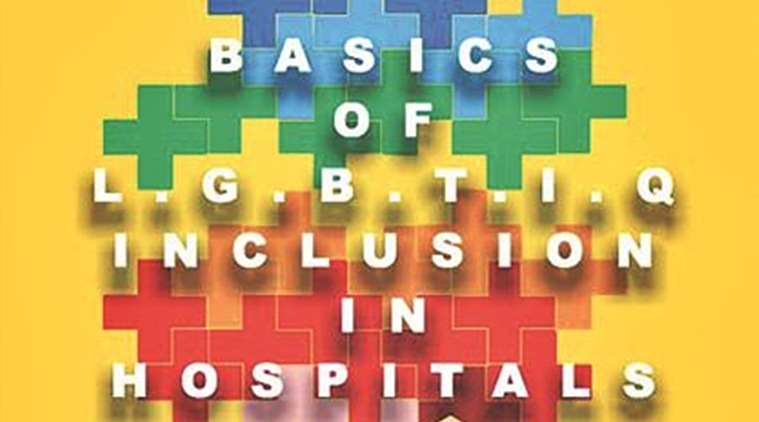 The implementation of the model at Bharati Hospital is being led by Dr Jyoti Shetty (professor and HoD of psychiatry department) who pointed out that nearly 10 per cent of the population belongs to sexual minorities.
The implementation of the model at Bharati Hospital is being led by Dr Jyoti Shetty (professor and HoD of psychiatry department) who pointed out that nearly 10 per cent of the population belongs to sexual minorities.
In a first-of-its-kind initiative, city-based organisations Samapathik Trust and Bindu Queer Rights Foundation, in collaboration with Bharati Hospital and KEM Hospital, have prepared a manual for LGBTIQ inclusion in hospitals. The manual is the brainchild of Bindumadhav Khire, an LGBTIQ activist who has been working on health and rights issues of the LGBTIQ community for more than 17 years. “Hospitals will find this manual very useful to start work on LGBTIQ inclusion as it provides information on the basic issues that need to be kept in mind when fine-tuning policies for LGBTIQ inclusion,” said Khire.
“The manual will be available for free distribution in the first week of March. We will also ask Indian Medical Association to help us in this effort,” he told The Indian Express.
Studies support improved health among LGBTIQ people in places where greater equality exists, and there is a need for queer-friendly health professionals in the community. The manual discusses two models of implementation, Core Unit Model and Systemic Model, said Khire. In the Core Unit Model, the focus is on LGBTIQ inclusion in specific units of a hospital. Currently, Bharati Hospital, located in Dhankawadi, is implementing the Core Unit Model, where the psychiatry department and SRS (Sex Reassignment Surgery) services have been the focus. Bharati hospital has also signed an MoU with Samapathik Trust for referrals.
The implementation of the model at Bharati Hospital is being led by Dr Jyoti Shetty (professor and HoD of psychiatry department) who pointed out that nearly 10 per cent of the population belongs to sexual minorities. The number of people seeking help are increasing, with information online, on social media and increased awareness among the youth, said Dr Shetty.
“We learned that a large number of LGBTIQ patients actually don’t prefer to come to private hospitals too much. So, where do they go, in Pune or even across India, if at all, where they can be sure their particular problems will be met with understanding and solutions? What is the quality of care they will receive? Can they afford that care? Do they avail of insurance? When they are sick and vulnerable, do they receive the assurance of a positive, safe and friendly environment in waiting rooms, changing rooms… and clinics..,.” said Taysir Moonim, a psychologist who is the mental health and psychosocial services and programme lead, Diversity and Inclusion Initiative, at KEM Hospital, Pune.
“What do we have to do, as a hospital, to be… inclusive? Here, we can work on two key objectives, access to inclusive and affordable quality healthcare, and providing jobs in a safe workplace. We started with the big questions. This has led us to many insights and solutions. We keep asking questions. We are listening and learning as we continue our work,” said Moonim.
KEM Hospital has started work with the Systemic Model, said General Administrator Shirin Wadia. Here, the Systemic Model is one where the entire hospital’s policy and practices are being streamlined towards LGBTIQ inclusion.
“The value of a formally mapped-out diversity and inclusion initiative like this is that we can now do so with awareness, and thus more conscious, informed intent. This allows us to take deliberate, considered and effective steps to be inclusive and sensitive in our care and services that improve the healing, work and lives of our patients, visitors and employees,” said Wadia.